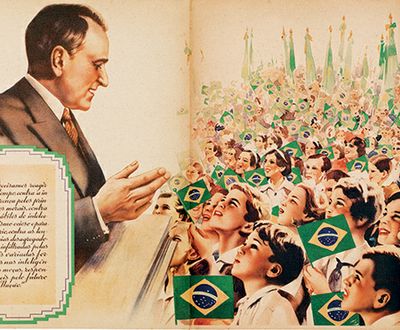Why Settle In Canada
Before the immigration boom in Canada in the 1950s, few Portuguese migrated to Ontario to settle. However, the story of Portuguese Canadians all begins back in their homeland in the 1930s when the Estado Novo government seized power. The transition of Portuguese statehood in 1933 marked a right-leaning government promoting traditional and religious values among Portuguese people.
The Estado Novo government looked up to Portugal's former colonial influence as an example and began encouraging missionaries to migrate to establish overseas communities. These communities were mostly within Portugal's colonial domain such as Macau, Brazil. Some Portuguese missionaries also settled in Canada, particularly in Quebec, Nova Scotia and New Brunswick, as they were attracted by the Catholic, Europeanized communities.
Who Are the Pioneers and Gatekeepers?
These Portuguese immigrants who first set foot on Canadian soil in the 20th century, were known as the "pioneers," first-comers of the Portuguese Canadian communities today. Living in Eastern Canada with a familiar cultural network, the pioneers quickly established their own community network and brought their traditional lifestyles from Portugal into Canada. Even those who arrived in the 1950s and 1960s were also regarded as pioneers as they helped expand and consolidate the connections of Portuguese migrants to find jobs, provide cultural recreation, and even connect migrants back to their hometowns. According to the Canadian Encyclopedia, during this period of time there were only around 200 Portuguese migrants moving to Canada each year on average.
Despite sharing Catholic and agrarian conservative social values as in Francisco Franco's Spain, Estado Novo's Portugal did not see emigration as a crisis, but rather hoped to direct it by only encouraging educated, Catholic elites to migrate and instate Portuguese communities in Portuguese colonies. Therefore, the Portuguese first-comers in Canada therefore quickly established a cohesive cultural network with moral support from their homeland. The state-invested effort of emigration later enabled more Portuguese to settle in those off-shore communities during the next several decades.


